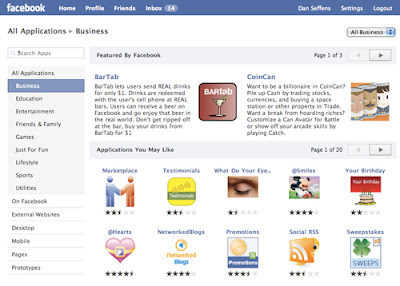
It seems simple and clear that if you are running a business, you should listen to your customers. Well, but how? Many companies spent a lot money on that, but they still failed to know their customers' feelings and thoughts. In Groundswell, we got the answer.
 There are a lot of social media tools for monitoring your social media, tracking your traffic and getting the specific comments and other information in order to know your customers. Erik Qualman summarized 100 social media tools for groundswell management, which may scare you. Some of them are used by a large number of companies. For example, Shoutlet are applied by many well-known companies, as content creator, conversation generator, and efficiency metrics.
There are a lot of social media tools for monitoring your social media, tracking your traffic and getting the specific comments and other information in order to know your customers. Erik Qualman summarized 100 social media tools for groundswell management, which may scare you. Some of them are used by a large number of companies. For example, Shoutlet are applied by many well-known companies, as content creator, conversation generator, and efficiency metrics.Also, a lot "teachers" appeared on Youtube, guiding audience how to listening to customers. Pedro Gomes gave us a guideline under this topic, which can be effective for small business owners. Many similar videos are there as well. All they mentioned are Google Analysis, Hootsuite and other tools, showing the general information.
Of course, there are other voice, something seemed more academic. Jim Kukral talked about a simple idea: you need to pick up the phone or send e-mail to one of your customer and ask, "Why you bought from me"? Gauray Mishra published a blog saying listening includes data collection and data mining.
Then you must wonder what Groundswell say.
 First, listening is marketing research, like what Gauray said, instead of only general insights or a few specific contact.
First, listening is marketing research, like what Gauray said, instead of only general insights or a few specific contact.Second, so-called homegrown monitoring methods, like what Pedro mentioned in the video, don't scale; whereas, vendors who provide professional tools are highly recommended.
Third, two strategies, along with real cases, are given as effective listening methods: one is set up your own private community; the other is begin brand monitoring. Managers can choose either way according to the industries and conditions of companies. Vendor like Communispace could provides real customer-based community for focus group driving to real results about brand impact, while sites like Nielsen's BuzzMetrics helps with understanding customer insight of brand through datas from social media.
So, what do I want to say?
First, as a manager, you need to understand what listening means. No matter it is marketing research, personal contact or data collecting plus data mining, you must have goals as getting clear picture of what customers are thinking about the brand, based on both qualitative and quantitive data.
 Then, you should choose the right tools. Erik's 100 social media are nightmare for me, but some of them do works for companies, like Shoutlet which has some really good strategies. Pedro and his guideline may work, but is not that useful. From my personal experiences, tools like Google Analysis can only give you a general impression about your business and competitors. If you are looking for something you can analysis and work with and some useful advices, you'd better listen to Groundswell and choose some bigger vendors. You could also find similar vendors on search engine besides those two examples.
Then, you should choose the right tools. Erik's 100 social media are nightmare for me, but some of them do works for companies, like Shoutlet which has some really good strategies. Pedro and his guideline may work, but is not that useful. From my personal experiences, tools like Google Analysis can only give you a general impression about your business and competitors. If you are looking for something you can analysis and work with and some useful advices, you'd better listen to Groundswell and choose some bigger vendors. You could also find similar vendors on search engine besides those two examples.
If you are the owner of a small business, you are free to choose free social media tools, and, Jim is right, you can talk to your customer directly. If your are a manager of a big company, take Groundswell's advice. The power of social media will surprise you! ^_^






